
Pablo Neruda on the Nature of Desire and the Desire of Nature
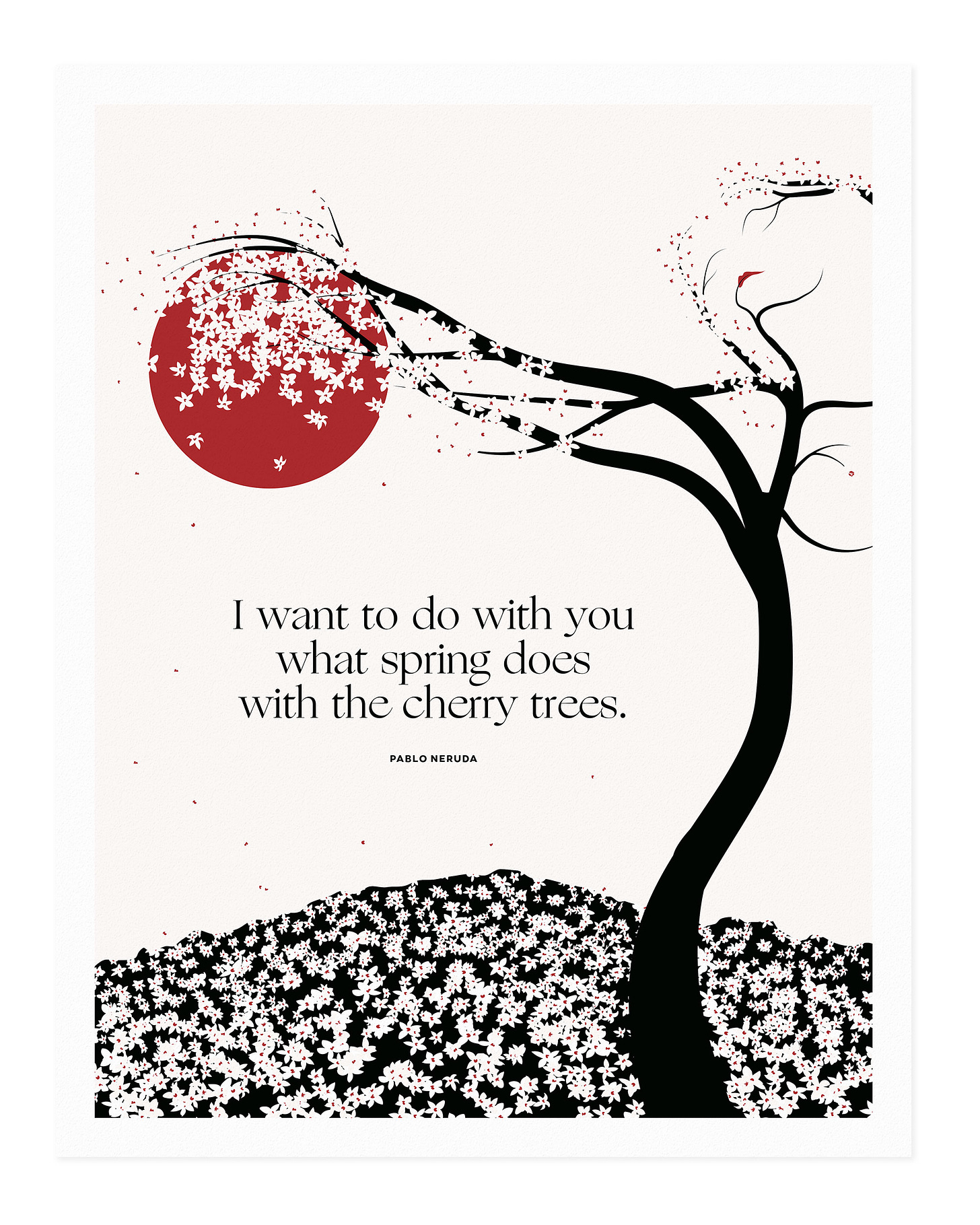
"I want to do with you what spring does with the cherry trees." - Pablo Neruda
I spent the weekend engaging in some serious spring cleanup with Nichole, and now (my body buttressed by a few Motrin), I am amped up for spring to get into full swing. Flowers blooming, birds singing, squirrels frolicking, and teenagers slanging incomprehensibly to each other, only outdoors and with their mouths for a change.
Age provides some clarity on desire. When you are young, the hum of it is deafening. It can drown out all other songs. Those birds, squirrels, flowers and teenagers are all in the throes of its refrain, and Neruda’s poetry is its anthem. But there are more subtle harmonies in his work that are easy to miss.
I discovered Neruda at nineteen, the age at which he wrote Veinte Poemas de Amor y una Canción Desesperada. His enthralling exploration of love, passion, infatuation and despair is an astonishing achievement for a nineteen year-old boy. It places him in a very small pantheon of good teenage poets - Rimbaud, Chatterton, Keats and perhaps just barely Shelley and Plath. I’m sure there are others, but they are extremely rare. Like most popular music, sexually charged metaphors and descriptions abound in Veinte Poemas; but their urgency is always tempered by an austerity, a grander connection to beauty and to nature, in a way that is both immediate and universal.
You know a great piece of literature by its ability to sustain multiple readings through your life, each time delivering fresh insights relative to your evolving perspective. The young Neruda had a preternatural sense of how desire, like spring, is not simply an object outside of us, but a force within us that shapes the world and binds our fates together..
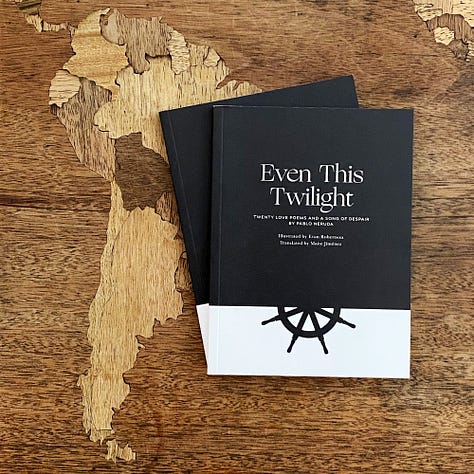
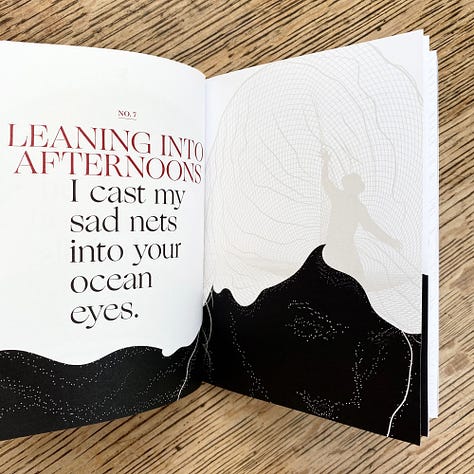

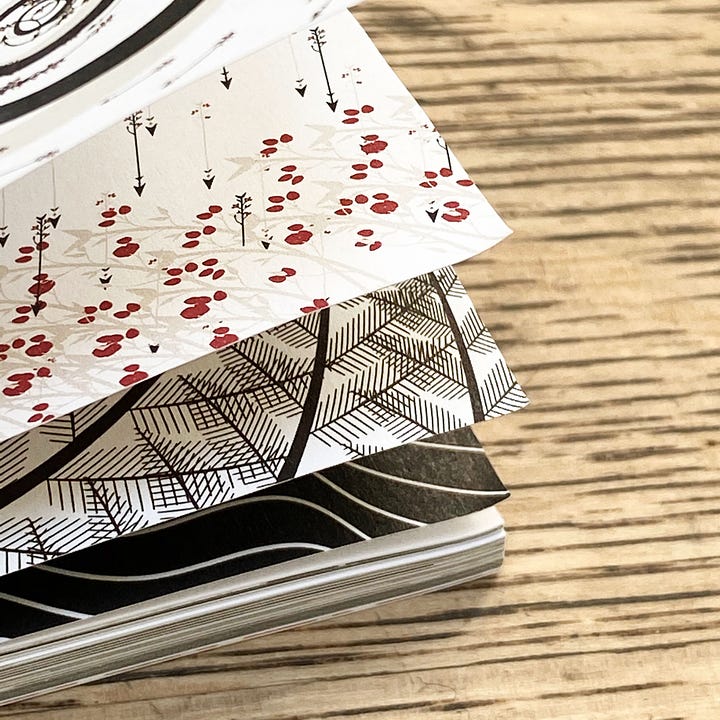
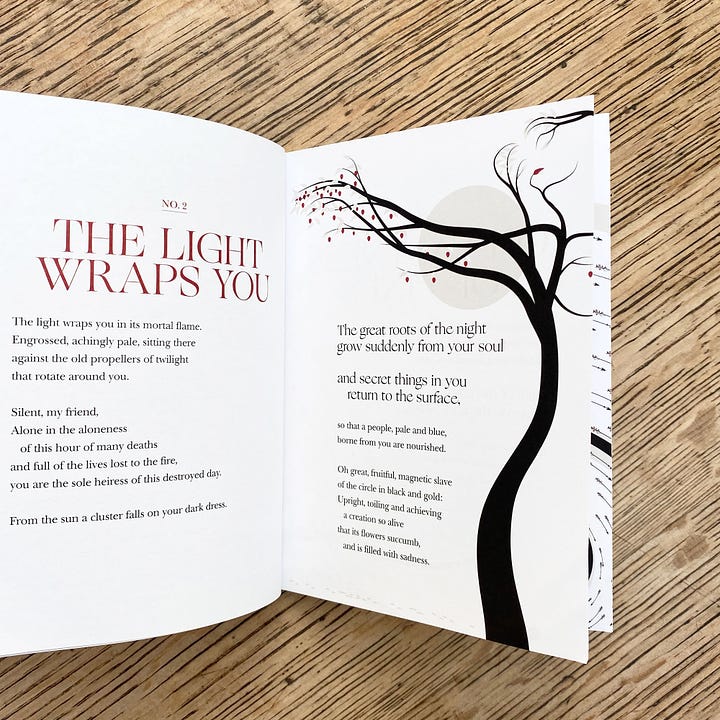
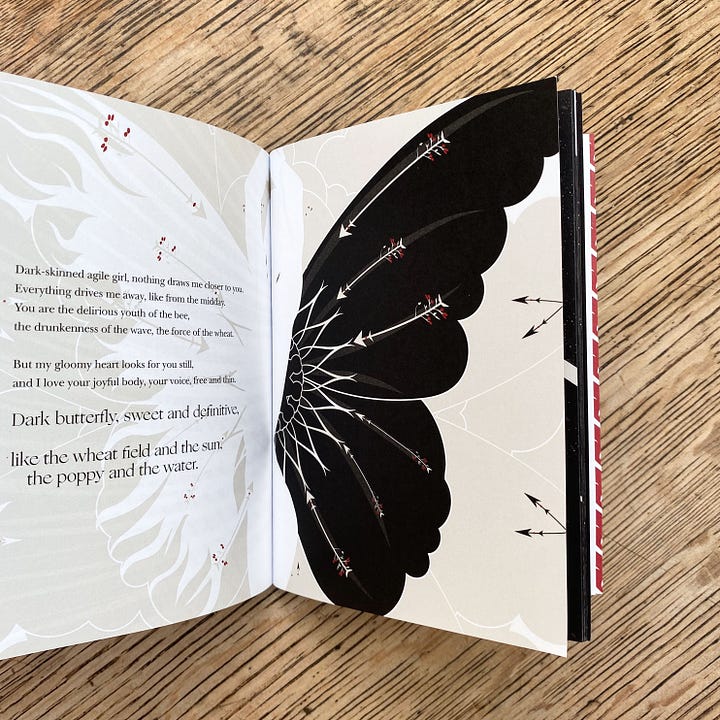

Images from my illustrated version of Neruda’s collection, Even This Twilight. Also available in a Spanish Edition.

